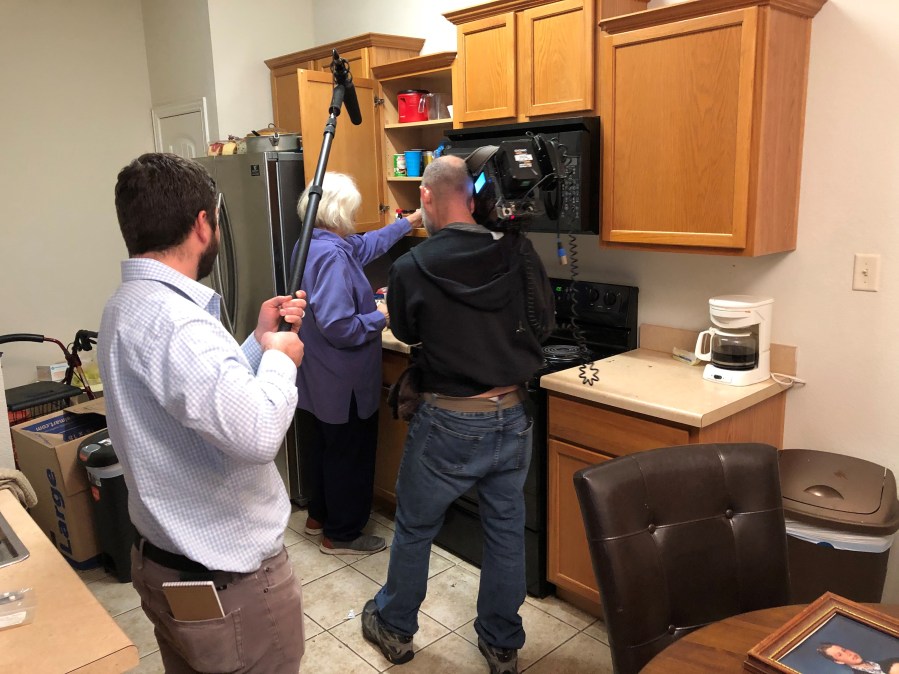AUSTIN (KXAN) — It was a soundbite that perfectly summed up the mission of KXAN’s latest investigation – “Locked in Limbo.” One of Texas’ leading mental health advocates recently told our team: “We need to treat these people fairly, humanely… treat it like a public health issue, because that’s what it is.”
Greg Hansch, executive director of the National Alliance on Mental Illness-Texas, was speaking about inmates who are sitting in county jails, awaiting competency restoration services – hundreds of people needing treatment before they can stand trial and fully understand why they have been charged. It is a growing problem that costs taxpayers, slows down the justice system and forces those inmates deeper into mental illness.
For almost a year, KXAN has been chipping away at this project – even as COVID-19 hit the state and forced us to find new ways to complete the work. “Locked in Limbo” was created by the station’s “Catalyst” team – a group of investigators that takes a multi-platform approach to complex topics like missing persons, mass violence and now – mental competency.
Multi-platform Project
We produced a three-part docuseries on families impacted by this problem, along with two additional videos focusing on solutions to mental health treatment in jails. The third season of our weekly investigative podcast, also called “Catalyst,” accompanies the series, taking a closer look at one specific case – a veteran who bounced between jail and state hospital for nearly four years.

We wrote an immersive, long-form article with photos and data features to further analyze the number of inmates on the state’s waitlist and how long they’re waiting. It also explores a mother’s three-month fight to get her son into a state hospital after he wielded a sword in front of her during a “delusional” episode.
Additionally, we created a mental health resource page for Texans looking for help in this area. It includes links to a variety of mental health and criminal justice groups with expertise on navigating the system.
Research & Reporting
KXAN interviewed more than a dozen people for this project – mental health advocates, legal experts, and county and state officials. We requested jail records and rosters from dozens of Texas counties, including the numbers of inmates in Central Texas jails that were awaiting transfer to state mental health facilities. We also parsed years of data collected by the Texas Health and Human Services Commission, federal lawsuits over the state’s waitlist, state-commissioned reports on the hospital system, legislative grants and state spending records on new mental hospitals.

Many of our record requests and efforts to obtain interviews and review state data were blocked due to medical privacy laws and ongoing lawsuits. Record requests that could reveal a person’s mental illness were thwarted and sent to the Texas Attorney General’s Office for a ruling that could take months to return. Who exactly sits on the state’s waitlists for a mental hospital bed remains tough to pinpoint because county jails and HHSC would not release those names.
Beyond the difficulty in obtaining public records, the stigma of mental illness kept many of the people stuck in the system, and their families, from speaking out and participating in interviews. However, we were able to connect with a number individuals who were incarcerated and experienced Texas’ backlogged state hospital system. We traveled to several cities around Central Texas to visit and capture video inside state hospitals and jails and to conduct interviews with families.
“This is an issue that really kind of lives in the shadows,” Hansch said of KXAN’s efforts to expose the problem in this investigation. “I don’t think there’s a very common understanding of what happens at state hospitals and who is served there. So people are blissfully ignorant about this issue until it affects them.”
KXAN investigators Josh Hinkle and David Barer join KXAN Live host Will DuPree to answer your questions about “Locked in Limbo,” our latest investigative project exploring mental health challenges in Texas’ jails.
KXAN Investigator Josh Hinkle joins KXAN Live host Will DuPree to discuss the new season of our “Catalyst” podcast on mental health in Texas jails.

















